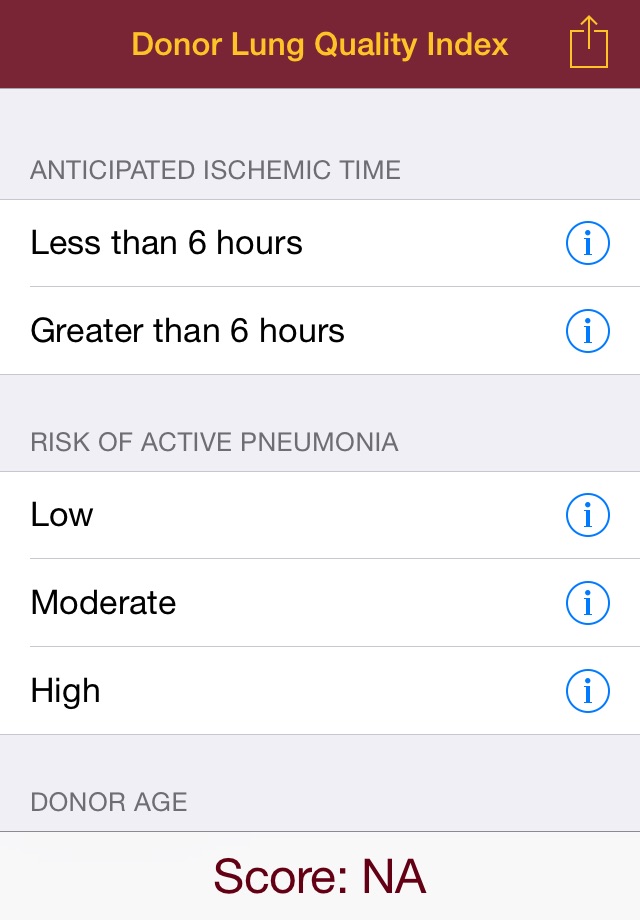
Organ selection in lung transplantation is a complex process that factors in multiple recipient and donor elements. The final interpretation relies on the individual’s experience and best available evidence. The University of Minnesota developed a useful tool that integrates the perspective and experience of several high volume transplant centers around the world. The University of Minnesota Lung Donor Quality Index (UMN-DLQI) is a consensus-based tool that estimates the likelihood of donor offer acceptance.
11 transplant centers world-wide participated in an on-line survey that ranked 16 lung donor-recipient factors and graded their importance on a 0-10 scale. Magnitude estimation methods were used to arrive at consensus-based weights for each factor. The final result is an index value from 0-50.
Preliminary research suggests that an index above 40 is a sensitive and specific marker for an offer that most centers would accept. The UMN-DLQI app allows the practitioner to quickly calculate the index. The app provides a useful screening tool to remind physicians that a score equal to or above 40 deserves considerable attention. In addition, the app facilitates multicenter investigations into the utility of donor scoring. Research on the use of UMN-DLQI is still ongoing and no definite conclusions can be made about the correlation of any particular score and the transplant’s outcome.
